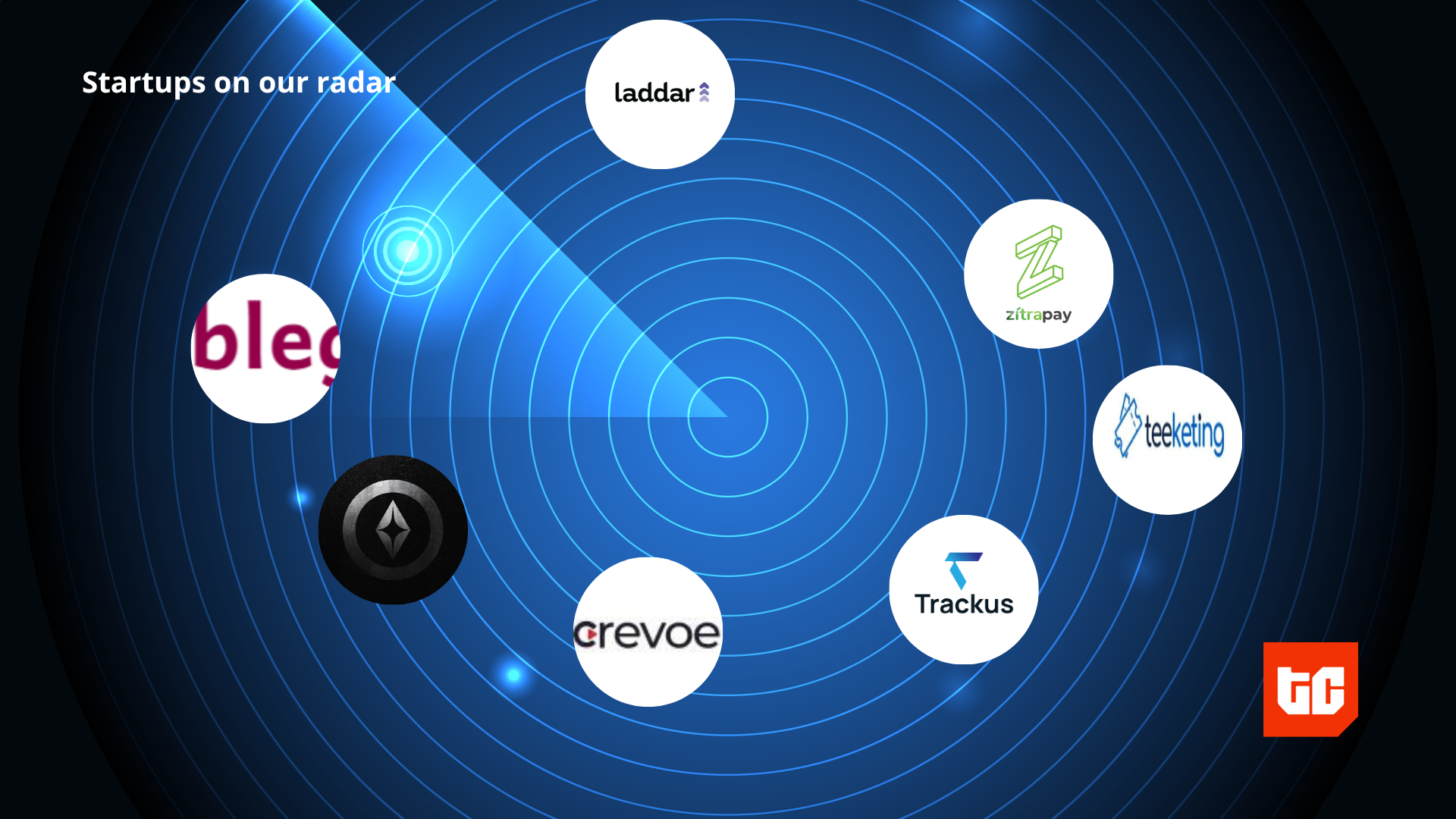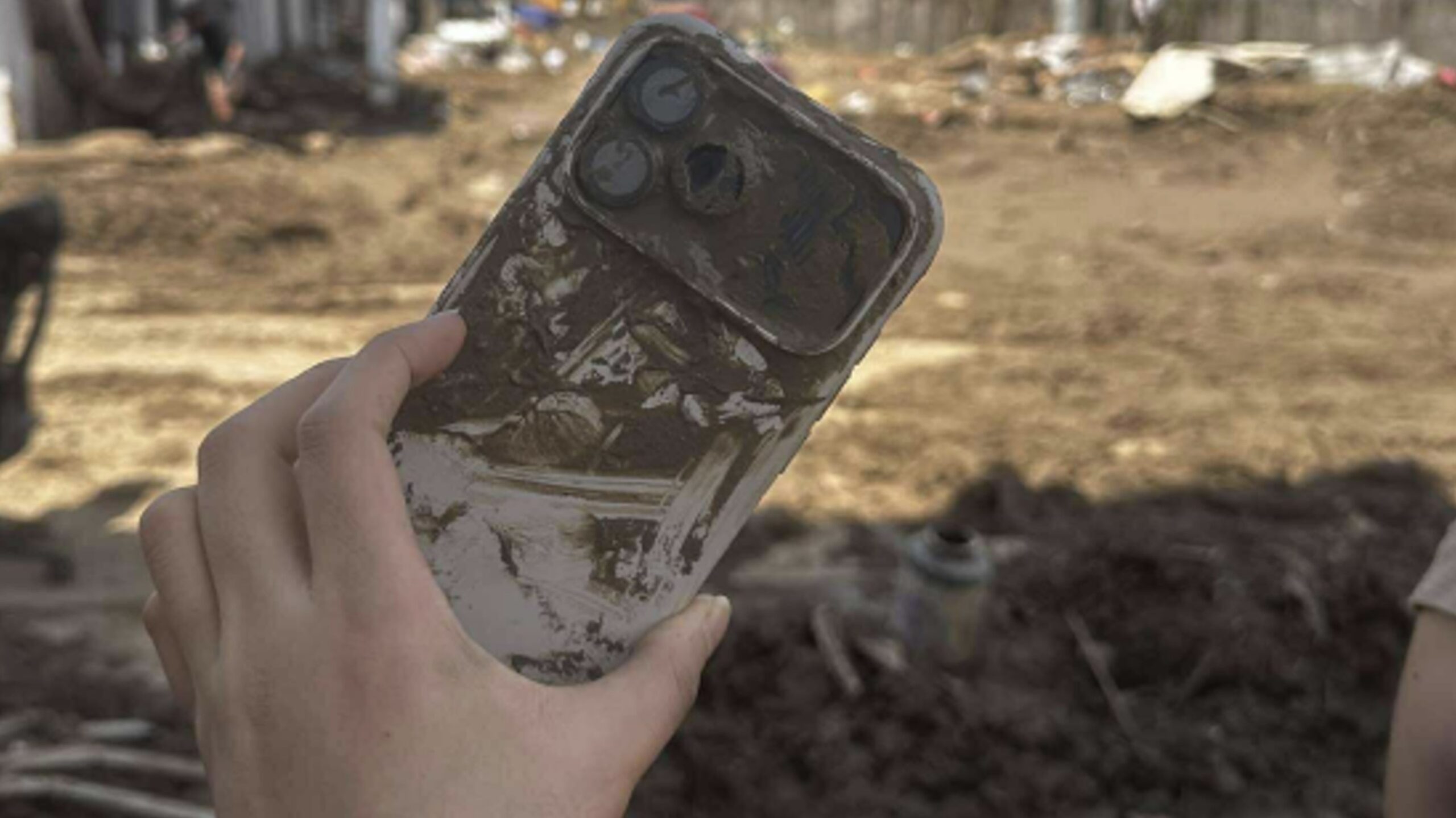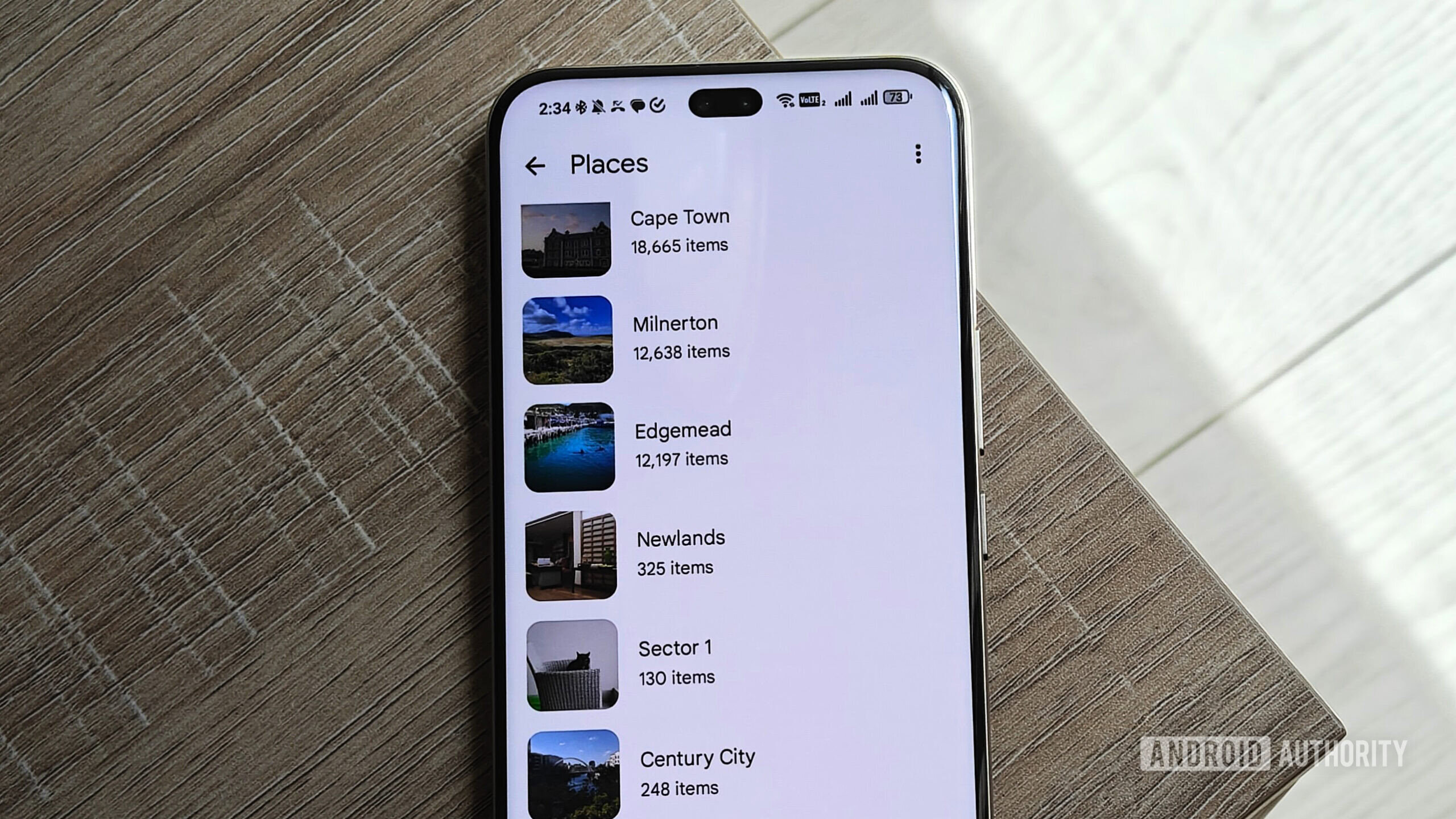Startups On Our Radar spotlights African startups solving African challenges with innovation. In our previous edition, we featured seven game-changing startups pioneering sustainability, artificial intelligence, health, and marketing. Expect the next dispatch on November 14, 2025.
This week, we explore seven Nigerian startups in the sales management, sports, event management, and creative economy sectors and why they should be on your watchlist. Let’s dive into it:
Laddar wants to be the all-in-one infrastructure for managing sales in Africa (SaaS, Nigeria)
Laddar was created in 2022 to address the challenge of managing sales and sales agents in Africa, regardless of the size or industry of the business. The platform has an interface for managers and another for agents. With these interfaces, businesses can manage sales teams, track performance, collect customer data, and process transactions, both online and offline. Businesses can also create and run campaigns, which could be sales-related for physical or digital products or data-related for tasks such as account opening or retail audits.
Each campaign can include product inventory, shipping requirements, agent groups, supervisor oversight, incentives that can be paid in cash, airtime, or data, attendance rules, and reporting dashboards. The platform has built-in Know Your Customer (KYC) validation for Bank Verification Number (BVN), National Identification Number (NIN), and selfie verification that is geo-tagged with the agent’s live location. The platform integrates directly with an organisation’s internal systems through APIs (Application Programming Interface).
For sales agents, Laddar allows them to sell products in person or remotely through unique shareable links, QR codes or referral networks. Laddar’s embedded finance feature supports cash payments, which are debited from the agent’s wallet to settle the business, removing the risk of fraud. The platform also works offline in low-connectivity environments.
Laddar’s revenue comes from a license-based model where companies pay for the number of agent seats they require. Additional revenue streams include recruitment fees for sourcing sales agents and charges for services, including SMS, email messaging, airtime, and data rewards.
Why we’re watching: Laddar is positioning itself as a sales infrastructure. Its ability to handle onboarding, verification, payments, inventory, training, and performance analytics in one system, both online and offline, provides solutions to the realities of African field sales, where offline capability and trust-based selling remain critical. The agent wallet debit model for cash collection reduces fraud exposure. Laddar is building the operational backbone for organisations seeking to scale distributed sales teams across Africa. The company says it has registered over 25,000 sales agents who work for nearly 100 businesses using the platform. Sectors represented so far include banking, insurance, entertainment, FMCG, and e-commerce. Laddar plans to scale its agent network to 100,000 across Africa.
Teeketing wants to power event management with its API-first infrastructure (Events, Nigeria)
Founded by Madukaife Linus in May 2025, Teeketing is an API-first event management platform that allows event organisers and corporate organisations to plan, manage, host, and analyse insights from an event within a single system. The platform was created to solve a problem that many organisers face, juggling multiple tools for payments, reminders, feedback collection, and post-event certificates.
On Teeketing, organisers can list events publicly or privately. They can schedule automated reminders, send event updates, including information like venue or time changes, to registered guests. They can issue certificates of attendance to event attendees, and also collect feedback on the event from attendees and non-attendees for reasons why they didn’t show up after getting a ticket, which can be converted to performance insights that show star ratings. Event pages can feature both flyers and promotional videos to attract attendees.
Teeketing has a multifaceted revenue generation model. It charges a commission of up to 10% on paid ticket sales. For events that are free to attend, organisers discuss listing terms directly with the team. Additional revenue avenues include premium consulting services for large corporate or government events, paid advertising to promote events on the platform, and paid issuance of certificates of attendance. The startup also intends to implement a tokenisation system where organisers buy tokens to use the platform’s features.
Why we’re watching: Teeketing’s primary differentiator is its “API-first” strategy. Unlike competitors like Tix Africa, this strategy allows organisers to embed ticket registration directly on their own websites, thereby keeping web traffic and audience engagement within their ecosystem rather than redirecting to external platforms. The platform is also setting up a marketplace feature that allows users to find and book verified event vendors, like photographers, caterers, or event decorators. These artisans will be rated based on past performance. The platform is also considering a buy now, pay later option for attendees to take loans for tickets. Teeketing has issued more than 20,000 tickets and claims to have processed over ₦1.4 million ($9,732) in ticket sales.
Martha AI says customer support can be African and empathetic (AI, Nigeria)
Moore Dagogo Hart, also the founder of Zap, founded Martha AI as a support agent designed to help companies automate their customer support departments. The idea originated from Hart’s own challenges at Zap, where a surge in users overwhelmed the human support team, especially at night. After searching for automation tools in early 2024, Hart found that existing solutions felt neither African nor truly automated.
For it to work, businesses integrate Martha AI, which is currently in private testing, into their existing customer touchpoints, like their websites or apps, through APIs or plug-and-play widgets. The system is built on top of GPT-5 but features a proprietary empathy stack that analyses customer messages on three levels: sentiment (how the customer is feeling), emotion (judged by the customer’s tone), and context.
The system is also trained to understand and reply in African languages, including Swahili, Yoruba, Igbo, and Pidgin, enabling smoother conversations that serve the African market better. The platform also includes a dashboard and an escalation system; if the bot cannot solve an issue, it alerts a human admin, who can either take over the chat or give the bot the correct information to relay to the customer.
Why we’re watching: While the local automated customer service market lacks a dominant player, Martha AI is positioning itself and standing out against global giants like Zendesk by making it African. Hart argues that global competitors are too broad and cannot grasp the specific context of African users who may use pidgin or who have less patience due to a history of poor support.
The platform has already demonstrated significant real-world impact. Hart says that the technology is being used by a nonprofit, Black Pride Canada, as a call centre for inbound calls from mental health and possibly potential suicide victims, and has already helped at least 70 people. With a full rollout planned for Q1 2026, the team is working on integrations with WhatsApp, Slack, Instagram, and developing an AI voice to fully automate its call centre capabilities.
ZitraPay wants to streamline global invoice settlements for local businesses (Fintech, Nigeria)
For importers, relying on traditional banks for making global payments often leads to missed supplier deadlines. ZitraPay was built in 2025 to solve the frustrations local businesses face in accessing foreign exchange and the slow process of making global payments. ZitraPay offers two core services that include global invoice settlement for businesses and liquidity/treasury management for companies needing to move funds between their local and offshore entities.
The startup, which began operating in June 2025, sees itself as a global payment support layer for local businesses. It works with licensed liquidity providers to source currency and then uses region-specific banking rails to settle supplier invoices faster and more predictably, rather than simply matching buyers with FX. The platform is built on a foundation of deep compliance, and the onboarding process for businesses is thorough.
A new business client is first profiled using documentation, tax registration, and licenses, while its owners are verified with their BVN or NIN, and checks against sanction lists. Once approved, the client is whitelisted with ZitraPay’s specific banking partners for the regions they pay.
To make a payment, the client submits an invoice, then ZitraPay sources the FX from its licensed liquidity partners and uses its network of payment partners and banks in the US, Canada, the UK, India, and China to execute the payment, typically settling within 24 to 48 hours. Despite not having a large public launch and only a few months in existence, the company claims to have processed over $1 million in transactions.
Why we’re watching: Africa’s cross-border payment market is set to reach $1 trillion by 2035. ZitraPay’s differentiator lies in its highly specific and detailed approach. The company does not provide FX; rather, it sources the FX from licensed liquidity partners and uses its network of global payment partners and banks to make international payments on behalf of local businesses. Operating during Nigeria’s period on the Financial Action Task Force (FATF) grey list required heavier documentation and stricter compliance from international partners, which slowed transactions. With the country now off the list, ZitraPay expects a gradually improving settlement speed and access to more correspondent banking routes.
Bubblegum Health is empowering women’s reproductive health discreetly (Healthtech, Nigeria)
Bubblegum Health, founded by Isaac Odugbesan, is a platform built to provide discreet and stigma-free access to women’s reproductive healthcare. Through research, Odugbesan found that stigma causes women to feel uncomfortable discussing issues like yeast infections with male doctors or to rely on Google searches or matters concerning their health. Sometimes, he found, women feel stuck with one hospital because their medical records are inaccessible.
Bubblegum Health currently offers telehealth consultations with a team of female general practice doctors, allowing users to keep their cameras off for privacy during consultation. The platform maintains a secure personal health profile for each user, which allows women to retain and control their medical records rather than having them fragmented across hospitals. It also features an e-commerce shop for over-the-counter products, fulfilled through a partnership with pharmacies. For issues requiring advanced care, the platform operates a referral system to partner clinics.
It also has a dedicated reporting process for sexual assault victims, which includes a form submission by the victim that instantly triggers an email to the Lagos State Domestic and Sexual Violence Agency (DSVA), while a Bubblegum doctor calls the user for a free post-traumatic care and direct them to an emergency rape kit at the shop. Bubblegum Health monetises through consultation fees, product margins on verified health supplies, and partnerships with clinic and pharmacy networks.
Why we’re watching: Bubblegum Health is addressing the core emotional barrier to accessing healthcare by building an ecosystem led by female-only doctors, allowing camera-off consultations, and providing a safe channel for sensitive health products. This targeted positioning gives it a clearer pathway to trust and repeat usage. The startup aims to develop an African-cultured period tracker and a medical-trained AI chatbot that will be trained on the platform’s own consultation data sets. This bot will provide predictive answers and escalate users to a human expert.
Trackus wants to help youth football teams play smarter with data (SportsTech, Nigeria)
Trackus is a sports analytics web platform built to help youth soccer teams train smarter and grow their talent. The core problem the founder, Elisha Odemakinde, identified is that most youth teams play so hard, but they do not know why they win or why they lose, and therefore rely on guesswork rather than data-driven feedback.
With Trackus, a coach or player uploads a simple video recording of a match to the platform, and then the system’s AI analyses the footage and generates detailed insights about speed, dribbles, passes, tackles, team play patterns, chances created or lost, and scoring opportunities. The system can also identify whether a player is ready to be scouted, making the tool relevant to clubs and scouts.
Trackus operates on a subscription and pay-as-you-go model, charging clubs roughly $4 per player per video and individuals $5 per player per video. So far, the company has analysed over 143 hours of real match footage and has grown organically to approximately 50 teams, representing over 400 players in Africa.
Why we’re watching: Nigeria has almost 500 football teams, and performance development is largely informal. Trackus is betting that with the right data, grassroots teams can train with the same intelligence as elite clubs. Against competitors like Track160, Trackus is positioning itself to win on the front of affordability by making data analysis accessible to the youth clubs that are typically priced out of expensive systems. Its key technical differentiator is being forecast-based, meaning that instead of just reporting what happened, the AI can simulate how the game should have gone and show teams how they could have won. While Trackus has successfully analysed volleyball, basketball, and baseball, it is prioritising soccer, where it has already found paying enterprise clients.
Crevoe wants to be the operating system for Africa’s creator economy (Creator Economy, Nigeria)
Crevoe, founded by Linda Obi, is a platform designed to connect and empower the creator economy by solving the fragmentation that defines the market today. It is a platform where creators can produce content, host live sessions, sell courses, manage communities, and receive payments, all in one place.
The creator’s journey is split into an Explore feed, which is similar to TikTok, a Studio, where creators can build and sell courses and mentorship series, and a Marketplace, where learners and users can consume and purchase content. The platform also includes a built-in video conferencing feature and supports ticket sales for paid communities.
To tackle common payout delays seen on global platforms, Crevoe is implementing a five-day payout cycle for creators. Having recently exited its beta testing phase, Crevoe has already onboarded at least 150 creators and plans to raise its seed round within the next six months. Crevoe generates revenue through transaction fees, marketplace commissions, and enterprise creator tools.
Why we’re watching: Africa’s creator economy is worth over $5 billion, with Nigeria’s soaring at over $31 million, but monetisation pathways remain fragmented, and infrastructure is often not optimised for local bandwidth and payout realities. Crevoe is attempting to build an end-to-end stack that combines content creation, distribution, community engagement, and payments into one environment. Its most critical distinction is being purpose-built for the African market as its mobile-first architecture and localised servers are optimised for the continent’s data and bandwidth realities.
That’s all for today. Expect our next dispatch on October 17th. Know a startup we should feature next? Please nominate here.











